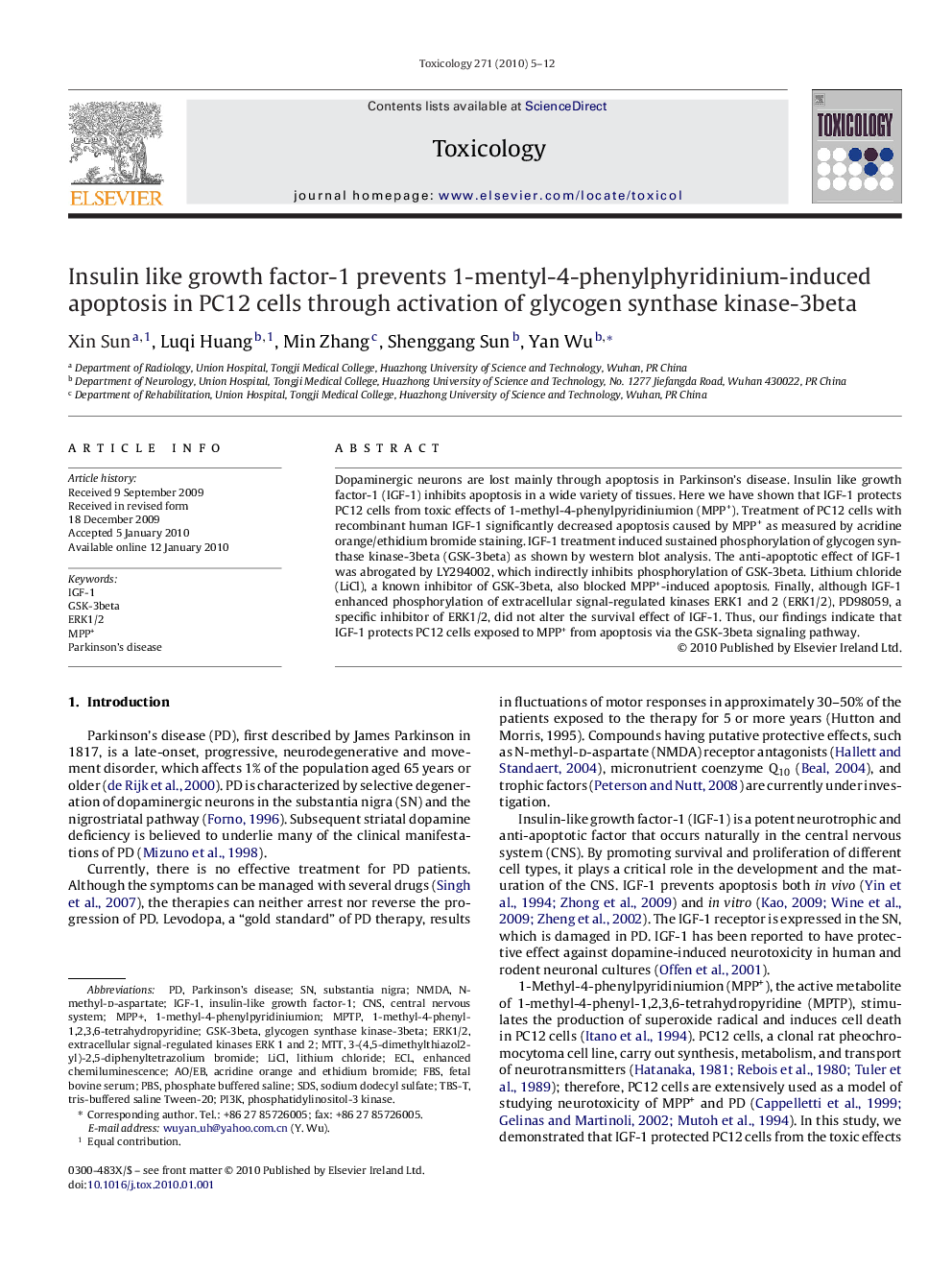| Article ID | Journal | Published Year | Pages | File Type |
|---|---|---|---|---|
| 2596283 | Toxicology | 2010 | 8 Pages |
Dopaminergic neurons are lost mainly through apoptosis in Parkinson's disease. Insulin like growth factor-1 (IGF-1) inhibits apoptosis in a wide variety of tissues. Here we have shown that IGF-1 protects PC12 cells from toxic effects of 1-methyl-4-phenylpyridiniumion (MPP+). Treatment of PC12 cells with recombinant human IGF-1 significantly decreased apoptosis caused by MPP+ as measured by acridine orange/ethidium bromide staining. IGF-1 treatment induced sustained phosphorylation of glycogen synthase kinase-3beta (GSK-3beta) as shown by western blot analysis. The anti-apoptotic effect of IGF-1 was abrogated by LY294002, which indirectly inhibits phosphorylation of GSK-3beta. Lithium chloride (LiCl), a known inhibitor of GSK-3beta, also blocked MPP+-induced apoptosis. Finally, although IGF-1 enhanced phosphorylation of extracellular signal-regulated kinases ERK1 and 2 (ERK1/2), PD98059, a specific inhibitor of ERK1/2, did not alter the survival effect of IGF-1. Thus, our findings indicate that IGF-1 protects PC12 cells exposed to MPP+ from apoptosis via the GSK-3beta signaling pathway.
